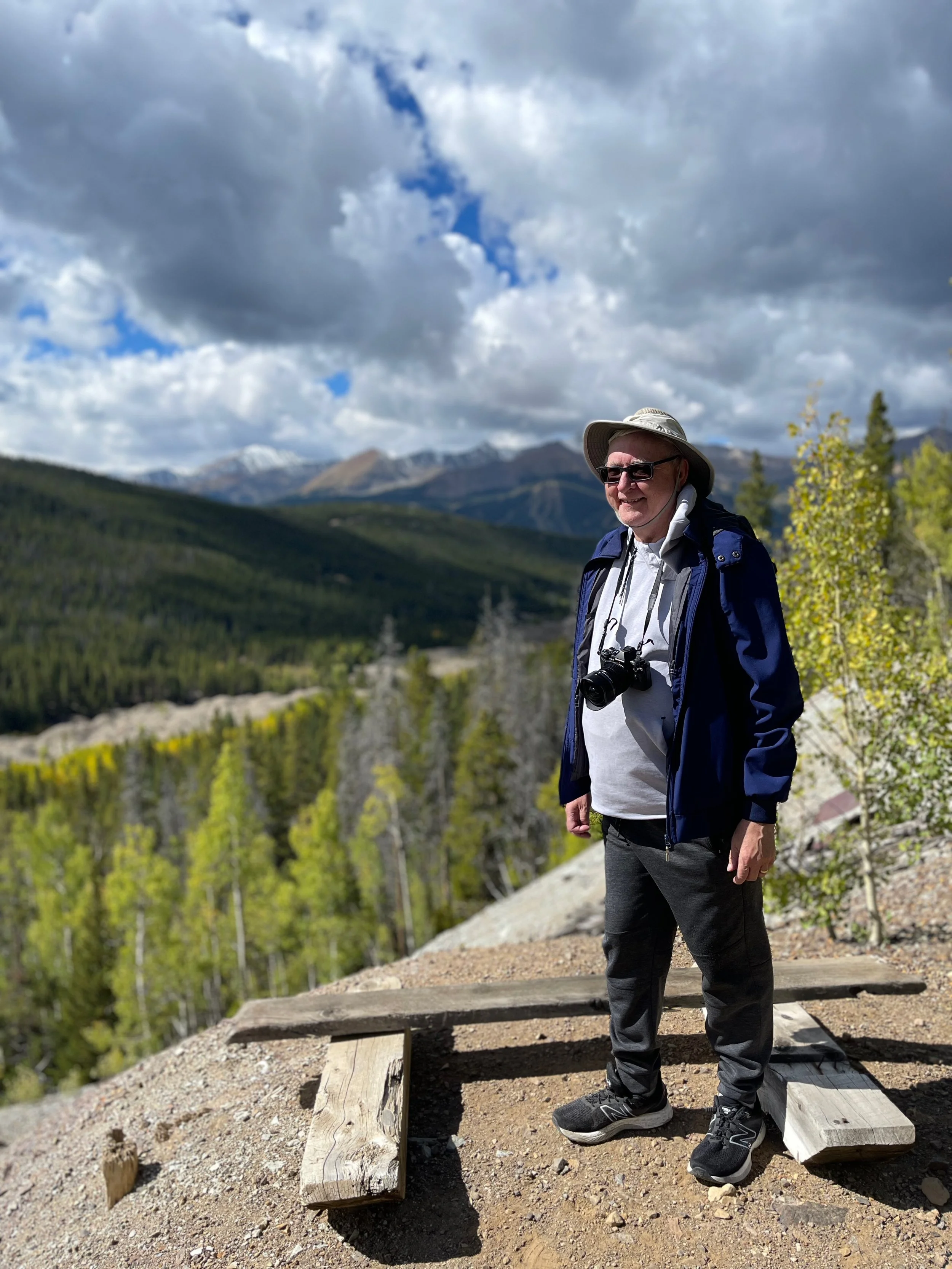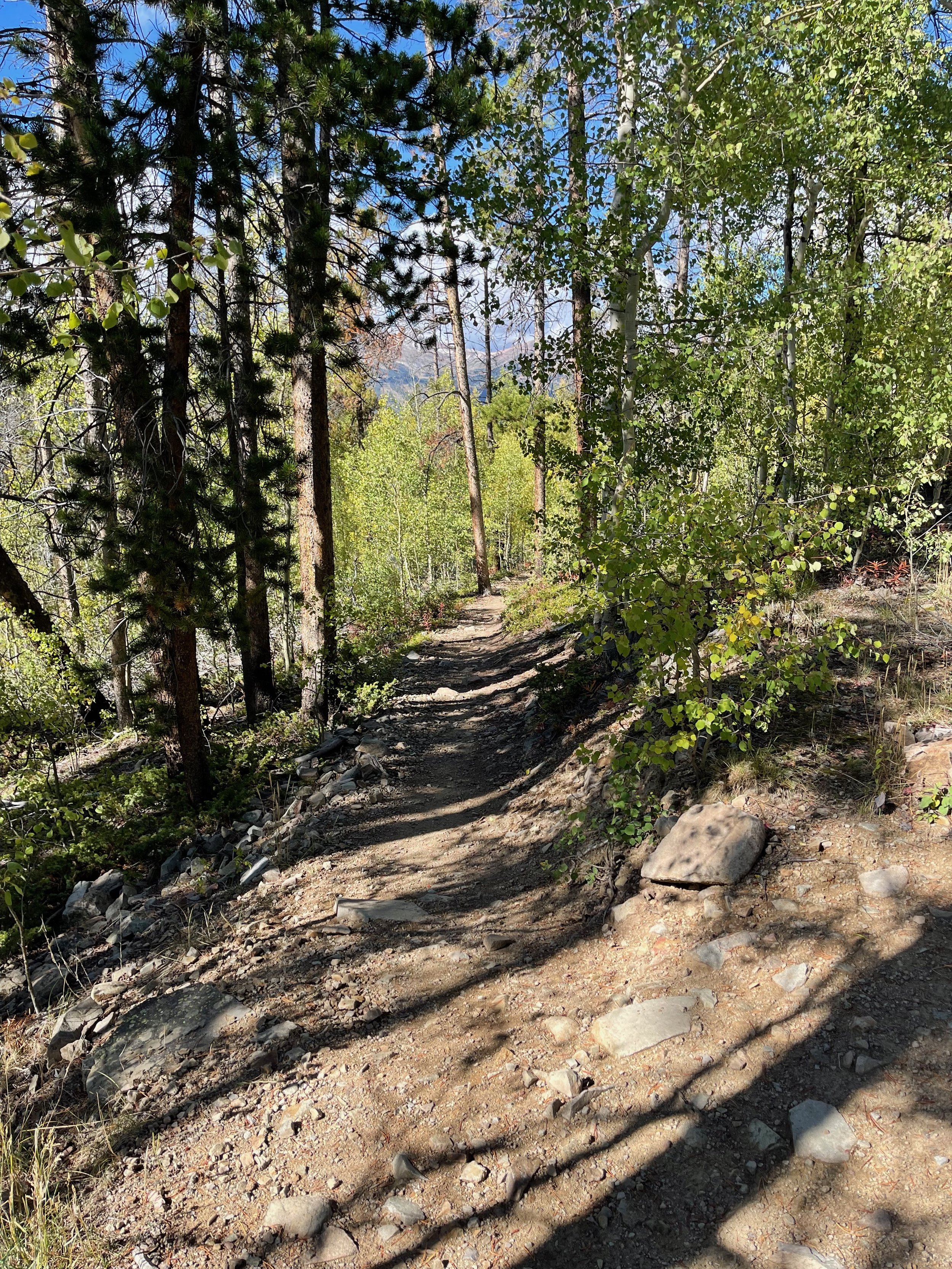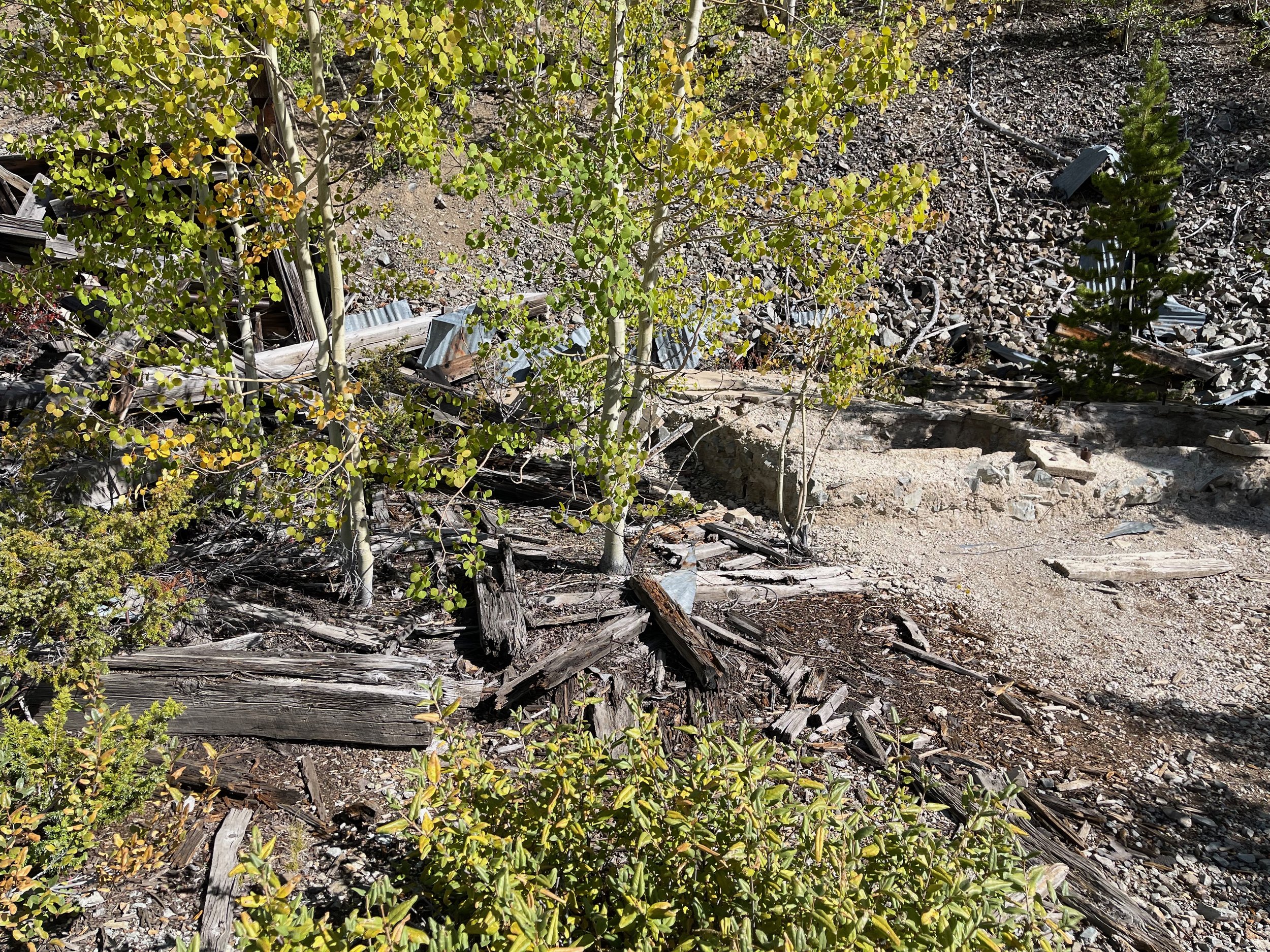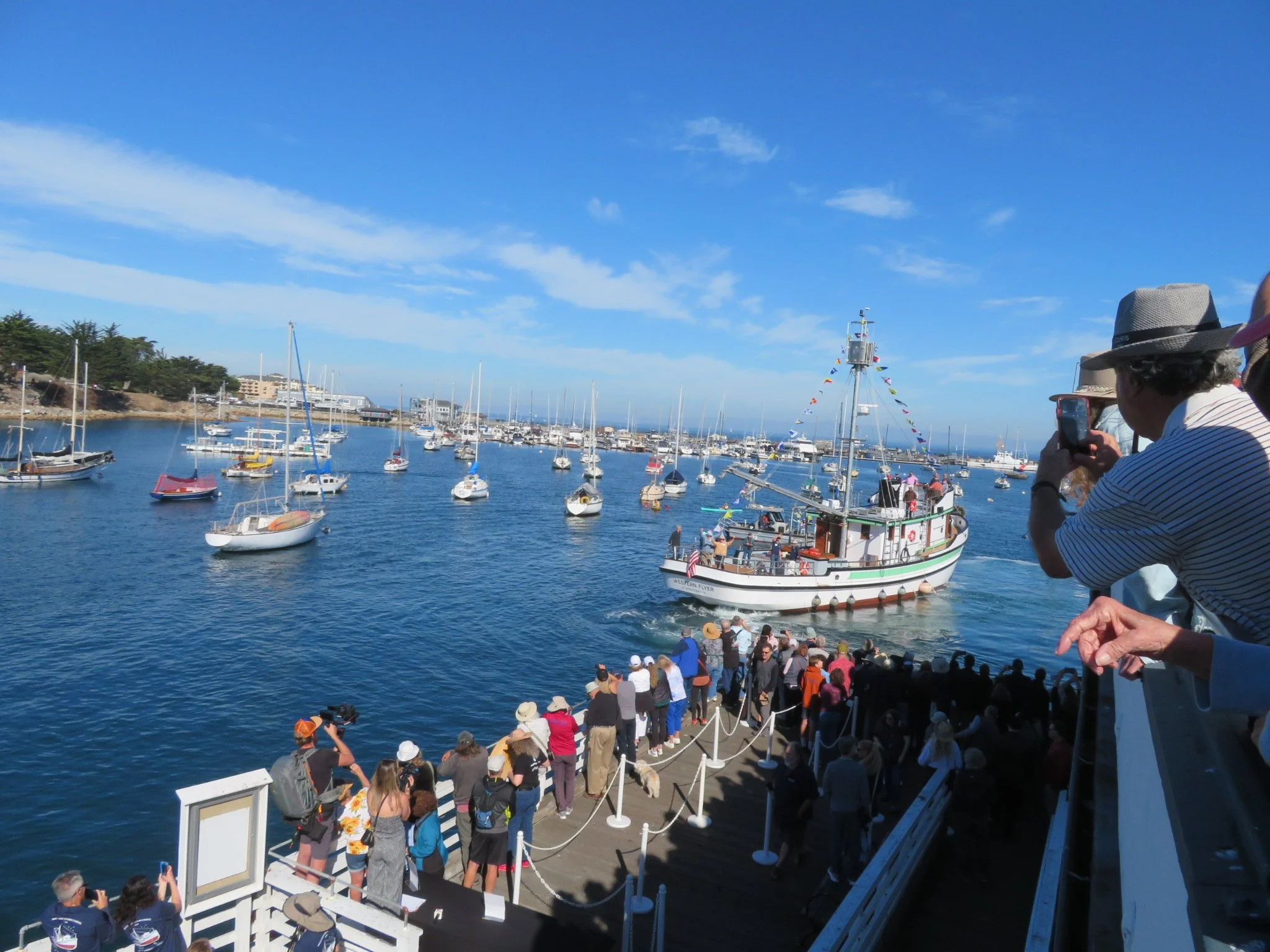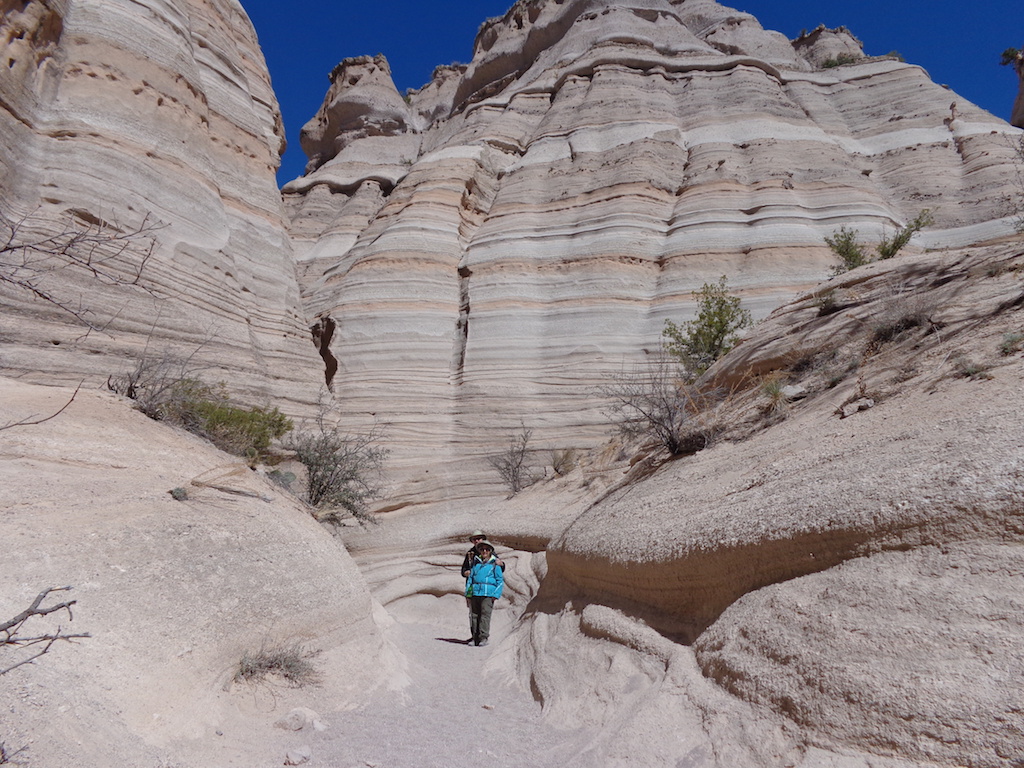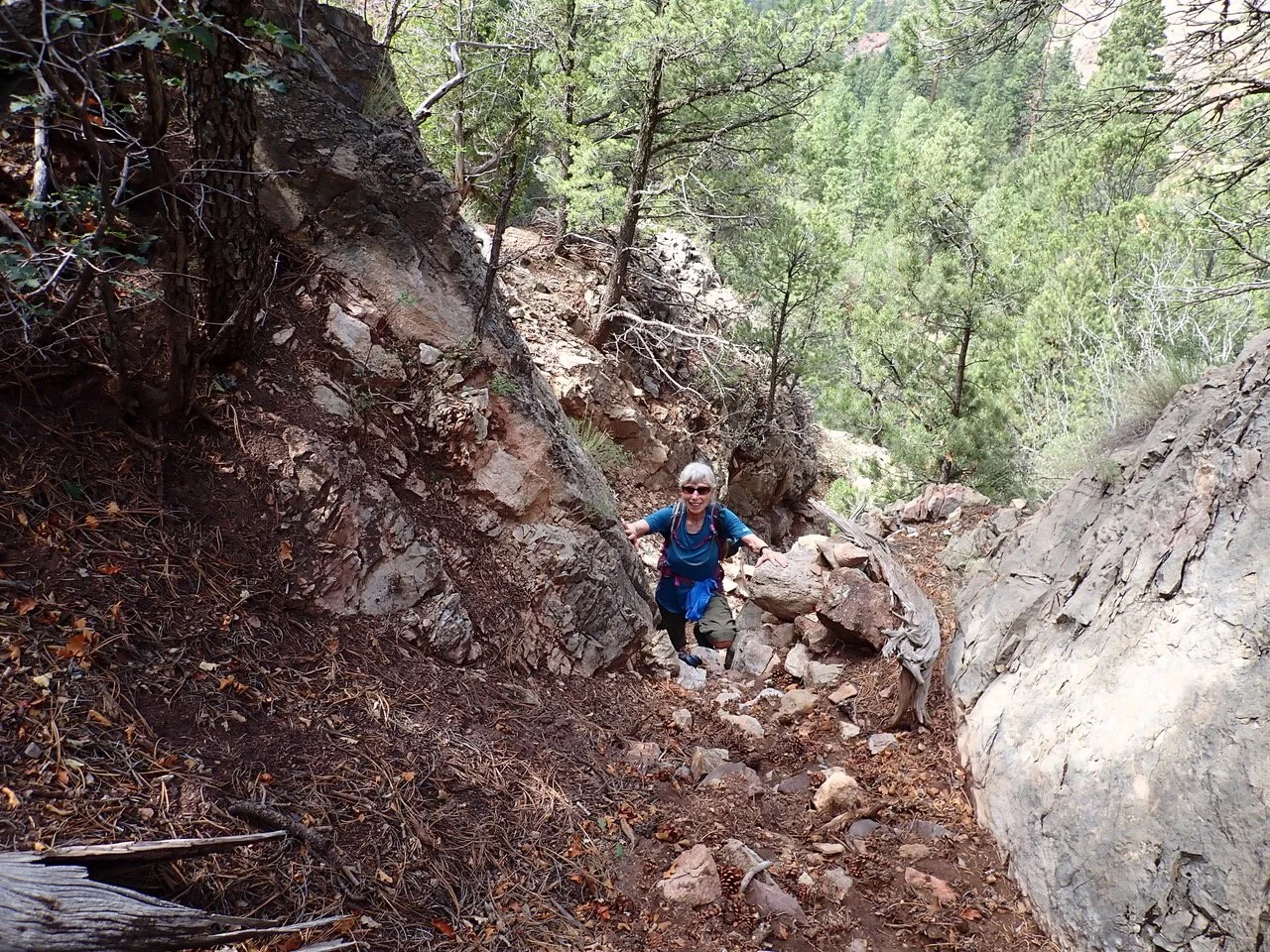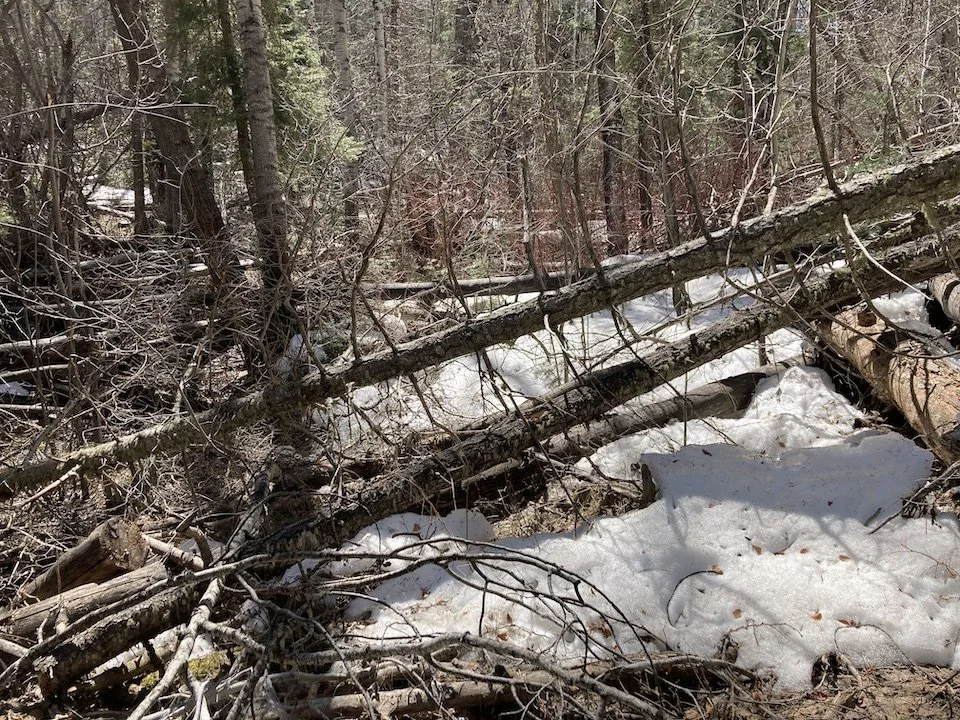Minnie Mine Trail
By Dr Allen Steven Lycka
As I stood at the base of the formidable hill, the realization of the task ahead sunk in me with a heavy weight. The mountain stretched before me, an endless expanse of ascending earth and rock that seemed to mock my feeble legs. I wasn't an athlete, nor was I particularly fit. In fact, on some days, I could barely walk, let alone climb a hill. Today was one of "those days". But sometimes, life throws challenges that we must confront, no matter how unprepared we feel.
The guidebook said the Minnie Mine trail hill was "easy." It may be easy for people with two legs and a sound body. My legs were anything but good. My right leg had a foot drop and would not lift without a brace. In addition, I broke my left ankle last year, and it remained weak, and its muscles had atrophied. But I was bound and determined not to let this hill beat me. It was only a mile and a half long going up. Indeed, I could make it. Or was I just being deluded?
My journey uphill began not out of choice but of necessity. In 2003, I was told, "Get your affairs in order. You have ALS (Lou Gehrig's disease). You have six months to live." It took years to find the correct diagnosis and beat the Grim Reaper. Indeed, I could conquer this hill now.
My plight began in 2003 with a right foot drop. With grim determination and the unwavering support of my family and friends, I had slowly, agonizingly, relearned how to put one foot in front of the other. Progress had been slow, painful, and fraught with doubt. But with each detailed step, I regained hope and a sliver of the life I had known before. My right hand was also affected. However, I learned to use my left hand as proficiently as my right, and I led the fields of cosmetic surgery and dermatology for 30 years until I retired in 2019. I won the prestigious Consumer's Choice Award for 17 consecutive years, an award given by your customers.
And so, on that fateful morning, I found myself at the foot of the hill, contemplating the steep, challenging incline ahead. My heart raced, not just from fear but also from a determination to conquer the impossible. And the altitude of 10,000 feet also added to the challenge. This hill was not merely a mound of earth; it symbolized my battle against adversity, a test of my willpower, and a statement to the world that my limitations did not define me.
I knew that the journey would be arduous. My legs ached with every step, and my breath came in ragged gasps. But I had to try. I had to prove that I could still accomplish something as physically demanding as climbing a hill.
As I took my first step, I was instantly confronted by the steepness of the ascent. My legs trembled, and I clung to the idea that every step was a victory. With each slow, deliberate movement, I found my mind waging an internal battle with my body. My legs screamed in agony while my mind whispered words of encouragement and determination.
And the worst part was the uneven terrain. My right foot does not always lift, making a fall very possible. And if I fell, I'd break my leg again. I promised my wife that. I wouldn't let that happen.
The uneven ground reminded me of the rough ground around the pyramids of Giza that I had visited a few years ago with my wife and my youngest daughter, Stephanie. Stephanie took my hand and said, "Don't worry, Dad. I won't let you fall." I dreamt of Stephanie by my side. I wasn't going to let her or my wife down and fall.
So, I steadfastly held onto my cane. I chanted, "Up one step, up one more. Up one step to the grocery store. Up one step, just like that, up one step to the laundry mat." And with each step, I threw my body upward.
The sun bore down relentlessly, casting a harsh light on my struggle. My vision was blurred with sweat, and the world around me seemed to blur into a kaleidoscope of greens, yellows, and browns. The hill, which initially appeared conquerable, now seemed like an insurmountable wall. Doubt crept into my thoughts. I wondered if I had been foolish to embark on this endeavor, if I was pushing myself too hard, too fast. But I couldn't give up when I had come this far.
Seeing my struggle, a passing hiker offered me a supportive smile and a few words of encouragement. It was a small gesture, but it meant the world to me. At that moment, I realized the power of human kindness and how it could be a beacon of hope during even the darkest times. I pressed on, buoyed by the belief that I could overcome this challenge, no matter how impossible.
Every step was an ordeal; every inch gained a hard-fought victory. I had to stop frequently, each pause a reminder of my limitations. My legs felt made of lead, and I questioned whether I could continue. The hill, though not exceptionally high, seemed endless. It was a mental battle as much as a physical one.
And at halfway, the path narrowed. On one side was a deep cliff. One misstep would cause me to fall into oblivion and likely be the end of me. Then, another stranger materialized. "Hold onto my walking stick," he said. "I won't let you fall". Like an angel appearing out of the abyss, he led the way. And after the narrowing stopped, he turned, smiled, and said, "Well done, my friend. I will let you continue on your way, alone."
As I continued the ascent, I couldn't help but reflect on the symbolic nature of my journey. Life often feels like an uphill climb, with obstacles and challenges testing our resolve. We all have our hills to conquer, battles to fight, and doubts to overcome. Just as I struggled up that hill, so too do we all encounter moments when it feels impossible to go on. But the human spirit is resilient, and it is in these moments of hardship that we discover our true strength. And friends show up to help if we let them. Never turn down their help.
I wasn't alone in this struggle through the misdiagnosis of ALS. My friends and family had been my pillars of support throughout my recovery, and they were with me in spirit on that hill. I felt their encouragement, their unwavering belief in my ability to overcome. It gave me the strength to press on, to take one more step and then another.
As I neared the summit, I couldn't help but feel a sense of awe and accomplishment. The view from the top was breathtaking, a panorama of rolling hills, endless sky, and golden aspen that Breckenridge is known for in the fall. I had done it. Against all odds, I had reached the peak of the mountain. The sense of triumph and the waves of emotion that washed over me was indescribable. It was a moment of pure elation, a testament to the power of perseverance and the human spirit.
And at the top was such a fantastic view. Surrounded by nature and the mountains, I had triumphed again, like when I beat the Grim Reaper. I felt like Edmond Hillary, who climbed Mount Everest. But even Hilary had Sherpa guides.
My descent was even more challenging than the climb. I had to exercise extreme caution to prevent my injured legs from giving way. I knew I was one step closer to the bottom and farther from my uphill battle with every step down. It was a bittersweet moment of relief and a sense of loss.
"Down one step, down one more down one step to the grocery store. Down one step, just like that, down one step to the laundry mat." I chanted.
As I finally reached the base of the hill, my legs trembling and my body drenched in sweat, I couldn't help but smile. This seemingly impossible hill had been conquered, and in doing so, I had destroyed a part of myself. It was a triumph of willpower, a testament to the strength of the human spirit, and a reminder that no challenge is too great when met with determination and support.
Dr Allen Lycka is the host and the executive producer of How to Live a Fantastic Life, a Fantastic podcast/ syndicated radio show with 7 million listeners a month, found on Apple networks. Many of his articles are here- www.Lyckatravels.com. When not writing and hosting, he travels the world.
